|
We've made it. Down to the Top Five of my favorite games of all time. Obviously none of these lists have been objective in any way, and I tend to disagree with BGG on rankings quite a bit, but I also have some things in common, so it's a wash in that regard. These are games that will literally never leave my collection, no matter what. So, without further ado, let's kick off the final installment of the series...for now, until I do an update at some point in the future. Oh, I suppose there's a little more ado...if you haven't looked at the previous posts, please do so: 5. Everdell BGG Rank: 28 Designed by: James A. Wilson Released: 2018 by Starling Games What can I say about Everdell that I didn't already say here? I suppose what I really love about this game -- other than the gorgeous components and presentation -- is that it always feels like a challenge. When you start with two workers, you think there's no way I'll ever be able to play 15 cards into my tableau, no way. But somehow, if you do it right, you're almost always sitting on a mountain of resources in the last round and playing out huge combos of critters and buildings to fill all those slots. It's simply superb, and we've played just the base box dozens of times; I can't speak to the expansions, but this is a game I'm not sure needs much added to it. It is, for my money, one of the best worker-placement games on the market. It comes in so highly for me because my partner and I both adore this game, so it naturally gets a bit of a bump, much like Wingspan. 4. A Feast for Odin BGG Rank: 22 Designed by: Uwe Rosenberg Released: 2016 by Feuerland Spiele and Z-Man Games Wow, Uwe Rosenberg does it again, landing on my list for a third time. This game is an experience, that's for sure. Strap in for a good 2+ hours for this one, but it's worth every single second, and I've played it at multiple player counts. Fair warning, there's a lot going on in this game, but imagine combining Agricola-style worker-placement and feeding your people (though I'll admit it's a little less punishing) with The Isle of Cats-style tile-laying while all being thematically grounded in the lives of Vikings. This game doesn't hit the table for me all that often because of the fact that it does take quite a bit of time, but every time it does, it's an absolute blast. I gotta say that this game is my favorite of Uwe Rosenberg's, and while intimidating, with a good teacher, you can get a lot of fun out of this one for years. 3. The Castles of Burgundy BGG Rank: 15 Designed by: Stefan Feld Released: 2011 from alea and Ravensburger Well, Stefan Feld has done it again, landing two games in my Top 10, and with good reason. This game is all about dice activation on a personal player board and laying tiles to activate bonuses. Each round, you'll roll exactly two dice and have exactly two actions -- kind of, unless you find clever ways to string together the bonuses for more actions -- as you compete to build the most prosperous estate in Burgundy. The replay value on this game is insane, as the tiles will always be different. We love this game so much that it's the only game I've ever bought an expansion for (solo variant) and upgraded components (nice drawstring bags for the tiles). It hits the table A LOT, and everyone I've ever taught it to has immediately wanted to own this game as well. It's the perfect mid-weight euro as far as I'm concerned, and nothing really compares in that price range for me (MSRP $45). While it's not a looker in terms of art and components, it's mechanically brilliant, and I don't see it losing this spot for a very long time. 2. Lisboa BGG Rank: 63 Designed by: Vital Lacerda Released: 2017 from Eagle-Gryphon Games Lacerda does it again as well. Obviously my triumvirate of favorite designers are: Vital Lacerda, Uwe Rosenberg, and Stefan Feld. This game, though...this game. It's probably the most thematic euro game I've ever played, as every single action is deeply grounded in theme, which is befitting of a Lacerda design, and this one is close to the designer's heart (Lacerda is Portuguese). You take on the role of Portuguese business persons trying to rebuild the city of Lisboa after the devastating earthquake of 1755, which was then followed by a massive tsunami and days of fires. You accomplish this buy adding cards to your portfolio; trading with the nobles; selling goods at sea; visiting the Master Builder, The Prime Minister, and the King; and rebuilding the downtown with the rubble of the old city. I'm not going to lie, it's a very complex game, but it's truly an experience, much like A Feast for Odin. At its core, you play one card and draw one card, but the cascading of actions in the decision tree is the real draw for me on this one. Mechanically, this game is a masterpiece, and thematically, it's a massive home run. 1. The Lord of the Rings: The Card Game
BGG Rank: Designed by: Nate French Released: 2011 by Fantasy Flight Games Well, here we are, and this is a runaway victory for me. I've spent countless hours on this game building decks and playing against scenarios at one, two, three, and four players. I've played every single quest in the game and own all the officially released content, apart from Nightmare Decks, which aren't essential, in my opinion. I mean, what more can I say other than it's my most played and most well loved game of all time? In this game you take on the role of a group of heroes adventuring through Middle-earth by contributing willpower over the forces of evil, mitigating the threat of the Enemy, defeating evil creatures and orcs, traveling to distant lands. Each turn consists of extremely tough (but rewarding) decisions and tension as the encounter deck throws the might of Sauron against you. Mechanically, the game is relatively complex if you're not used to these types of card games, but it truly evokes the world of Tolkien's masterpiece in a way that no other game does, in my opinion, except maybe The War of the Ring, but that's decidedly not my type of game at this point in my gaming life. While this game has officially gone on hiatus in terms of producing new content, I still adore it and return to it with some regularity to play through my favorite scenarios or to reenact the Saga Campaign, which is the game's representation of the key moments throughout The Lord of the Rings (absolutely my preferred fandom of choice, despite some of the problematic nature of Tolkien's writing, but that's for another blog, I think). Credit: All images come from Boardgamegeek
0 Comments
Think it's about that time to dive into the Top 10 of all time...for me, in August of 2021. Obviously this is subject to change, but it'll take quite a bit to unseat these behemoths. I should also note that the criteria are as follows: 1) How much do I like the game's presentation, mechanisms, and overall package?; 2) How much does my partner like it?; 3) Would I play this game over any other at any given moment?; and 4) How does it work solo? (this is a bit of an arbitrary one that I've thrown in as the list goes on, as about 50% of my gaming is by myself) With that in mind, let's get to the first half of the Top 10. If you missed any of the others, here they are: 10. Carpe Diem BGG Rank: 351 Designed by: Stefan Feld Released: 2018 by Alea Well, BGG and I disagree on this one quite a bit, as the discrepancy in our rankings is just crazy (351!), by orders of magnitude. I'll preface this a bit by saying that this is in my partner's Top Five games of all time; she adores this game (and usually beats me at it). This is a tile-laying game at its core, but you're restricted by the configuration of your city district's initial setup, which is always random. There's a bit of luck in that regard, but I find the movement around the star-shaped board to pick up tiles super satisfying and crunchy, but not too much of a brain burn. As far as mid-weight euros go, this is a must-have. I can't say enough good things about Carpe Diem. It's affordable, infinitely replayable, and just tons of fun every time it hits the table. Pro tip, though, don't use the Victory Point cards that come with the game...keep track with pen and paper; it'll save you so much time. 9. Paladins of the West Kingdom BGG Rank: 70 Designed by: Shem Phillips and S J Macdonald Released: 2019 from Garphill Games and Renegade Game Studios Sound familiar? Well, it's the second in the trilogy of West Kingdom Games from designers Shem Phillips and S J Macdonald, so it's the sequel to Architects of the West Kingdom, which appeared earlier in this series. Fair warning, it's a massive step up in complexity from its predecessor, but it's so rewarding. In Architects, you're trying to build the kingdom, and in Paladins, you're trying to defend the kingdom from invaders by either converting warring factions to your side or defeating them in battle. There are a TON of different ways to place your different workers in this game, and you have to solve the efficiency puzzle on your player board -- which is, incidentally, larger than the main game board -- to chain actions to gain more workers to do more actions. Not gonna lie, it's a lot of head-in-hands-type thinking, but it's an experience like no other. The solo mode is fantastic, and I think this game plays best at two players, which is most of my gaming life anyway, so this game just fit perfectly into my Top 10 of all time...Paladins. It's great. 8. The Gallerist BGG Rank: 59 Designed by: Vital Lacerda Released: 2015 from Eagle-Gryphon Games So, how do you make the world of high art into a board game? You enlist the help of designer Vital Lacerda. I've already gone on record saying that he's my favorite board game designer, and this one is a stunner. I love art, and I love board games, so this one was sorta tailor-made for me. To be fair, it's very complex, as all his games are. But I can't stop gushing about The Gallerist. You take on the role of a gallery owner trying to attract celebrities, collectors, and investors to your shows, but before you can exhibit art, you must discover and commission artists of varying degrees of fame and promote them through various forms of media to drive the price of their work up before you sell it to someone else. There's a lot of interconnected mechanisms in this game, but the rulebook is superb, and you get to take actions on your opponents' turns. Simply brilliant. I absolutely love this game and would play it anytime. I'm honestly surprised it didn't crack the Top Five. 7. The Isle of Cats BGG Rank: 96 Designed by: Frank West Released: 2019 from The City of Games I've also written about this one before here. The Isle of Cats is easily in my partner's Top Five of all time, and it ranks very highly on my list as well because it's simply fantastic. You take on the role of ship captains returning to The Isle of Cats to rescue cats onto your ship before the dreaded Lord Vesh arrives (it's not clear what'll happen when he gets there...). The theme is cute, and the components are gorgeous, but the combination of polyomino tile placement combined with card drafting makes this game roll. Think of playing Tetris with adorable cat tiles on your personal player board. There's a really great solo mode included, and there's a family variant, so the base box alone can accommodate pretty much any gamer, and the sheer number of cards and tiles included make this game play out differently each time it hits the table. 6. Wingspan
BGG Rank: 21 Designed by: Elizabeth Hargrave Released: 2019 from Stonemaier Games Yet another Stonemaier game makes it onto the list. Not sure what else there is to say about Wingspan that hasn't already been said, both here and other places...It's just a fantastic game, and it comes in at number 6 on my list (probably number 1 or 2 on my partner's list, which definitely contributes to its high ranking). Engine-building combined with beautiful art and cute, wooden eggs. A real sense of escalation as you have fewer and fewer actions to take each round while accumulating bonuses along the way, filling up your tableau with amazing bird powers. What's there not to like? Credit: All images come from Boardgamegeek. Inching closer to the Top 10. Let's get to it. But, in case you missed any of the previous posts, check them out here: 15. Hallertau BGG Rank: 406 Designed by: Uwe Rosenberg Released: 2020 by Lookout Games So, designer Uwe Rosenberg hits the list again, this time checking in with back-to-back listings (Agricola was #16) and yet another farming simulation. However, unlike Agricola, this game has no feeding your people and is a LOT more wide open in terms of gaining resources. The card play in this one is super satisfying, as there's SO MUCH to do, and each card in your hand offers you miniature goals to achieve throughout the course of the game as you try and build up your community center in the hops-growing region of Hallertau in Bavaria, Germany. What's really brilliant about this game is that it actually simulates crop rotation -- when you leave a field fallow for a turn / harvest season, it becomes more fertile for the next turn and will produce a higher yield. This game is so wide open and allows players near infinite opportunities to gather resources. Plus, it scales well at every single player count, including solo. Absolutely love Hallertau. 14. The Magnificent BGG Rank: 824 Designed by: Eilif Svensson and Kristian Amundsen Østby Released: 2019 from Aporta Games The Magnificent is a bit of a Frankenstein's monster of mechanisms, but they all come together in a smooth-playing game driven by dice drafting and dice activation at its core. While there's a bit of tile laying as well, this game really is all about the dice. I'll be honest, the theme is really cool in that you're supposed to be running a mystical circus with magnificent performers putting on shows, and you're supposed to be attracting the most guests with tickets (points) at the end of the game...but the theme is barely present in this game. It's really all driven by the mechanisms, but that's alright with me. You only play three rounds, and you only draft four dice each round, so you really only take twelve actions over the course of a game, but the chaining of scoring opportunities and being able to pay for your dice is really where the economy of actions comes into play. This game is imminently satisfying in both solo and multiplayer. Can't say enough good things about The Magnificent, and the only real knock is that the theme, while cool in concept, isn't super strong in terms of being evoked by the gameplay. 13. Rajas of the Ganges BGG Rank: 150 Designed by: Inka Brand and Markus Brand Released: 2017 from HUCH! Well, Rajas of the Ganges, much like The Magnificent, is a dice activation game, but it's combined with worker placement, and that combo is just superb. The board is two-sided, one for two players and one for three or four players, and so the game scales well in that regard. It takes place in 16th century India, and you are taking on the role of Indian nobility trying to generate wealth and fame, which brings me to what makes this game so special: you are constantly weighing two end-game scoring conditions and moving along both tracks (wealth and fame) simultaneously in an effort to get your pieces to intersect on the tracks first, thereby triggering the end of the game. It's a brilliant race game with beautiful components and solid, solid euro mechanisms that just make this one pure fun every time it hits the table. This one is easily in my partner's Top 10, but she actually doesn't care for the scoring condition. The only knock I have on this game is that there's no official solo mode, which would've made this one land in my top 10 EASILY. 12. CO2: Second Chance BGG Rank: 699 Designed by: Vital Lacerda Released: 2018 from Giochix.it and Stronghold Games Vital Lacerda is my favorite designer, and here's a little spoiler: this isn't his only entry on this list of Top 25. I wrote a bit about CO2: Second Chance here, so I won't go too much more in depth about it. The theme is incredible -- trying to curb worldwide carbon emissions while building sustainable energy power plants on earth in six of the seven continents (no Antarctica in this one). What makes this game stand out, apart from the theme, is that you can play this game fully cooperatively, solo, and competitively. The catch in the competitive game, though, is that you HAVE to work together to a certain extent because there is a global loss condition. There's a central market system that's really dynamic that deals with Carbon Emission Permits, which help you build the infrastructure for new projects. Every single action -- proposing a project, building infrastructure, and finishing a plant, is wonderfully grounded in theme, and you're also presenting your research findings at global summits. There's A LOT going on in this game, but it's really challenging and imminently satisfying to actually win in co-op or solo. The competitive game has a really nice ebb and flow to it as well. One of Lacerda's best, in my opinion, despite its lower ranking according to BGG. 11. Scythe
BGG Rank: 14 Designed by: Jamey Stegmaier Released: 2016 from Stonemaier Games Well, Scythe is a bit of an outlier in my list, because it has elements of a dudes-on-a-map game with tactical combat between players -- something I generally tend to avoid in games. Set in an alternate, steam-punky 1920s Europe, Scythe is a masterclass in design. At its core, it's an action -selection race game to get six stars out on the map. There are no set number of rounds or phases within those rounds; it's just players taking turns taking a principal action and a bonus action if they can afford it...simple, right? But there's a TON going on in Scythe when it comes to resource management and troop/worker movement. Each player will also start the game in different positions on different tracks with access to different resources and abilities, so no two games of Scythe will play the same, even with just the base box, which is all I own (I'm sure I'll blog about my aversion to expansions someday). It might sound like there's a lot of variance, but there's very little luck involved in Scythe, and I really enjoy that. While it's one of the newest games to enter my collection -- got it at a deep discount online -- it's climbed up the rankings very quickly, even with just solo play in mind, as the automa system is wonderful. Can't wait to play this at higher player counts. There yall have it: 15-11. Credit: All images come from Boardgamegeek. Here we are for the next installment of my favorite 25 games of all time. Not much to add here other than you should check out the previous posts in the series, including my honorable mentions and numbers 25-21. 20. Imperial Settlers: Empires of the North BGG Rank: 390 Designed by: Joanna Kijanka and Ignacy Trzewiczek Released: 2019 from Portal Games I'll preface this by saying that I rank this game so highly because the solo mode is really fun; my partner didn't really care for this game much, but I absolutely adore the card play. Each turn is incredibly satisfying as you build your tableau and manage resources to generate the best point-producing engine possible. It's always a race to a particular point threshold, and I can't say enough good things about this game. Each of the six factions in the base box offers serious asymmetrical gameplay, which offers a ton of replay value, even if you're just playing this against the solo scenario book. 19. Gloomhaven: Jaws of the Lion BGG Rank: 5 Designed by: Isaac Childress Released: 2020 from Cephalofair Games The little brother of the monster hit and current BGG Number 1, Gloomhaven, Jaws of the Lion is a much more palatable introduction to the world of Gloomhaven. First, it's way more affordable and can be found at Target, and second, the rules are taught through a series of introductory scenarios, making the barrier to entry significantly lower than its big box predecessor. In this fully cooperative game, you are mercenaries slashing your way through various dungeon scenarios on the hunt for answers to the mysteries the campaign sets out for you from the very beginning, and it's superb. Because you're mercenaries, the game only allows for imperfect communication and introduces secret goals as you progress through each mission. The card play is just phenomenal and puzzle-y enough for me to really enjoy this game that I otherwise wouldn't ever bother picking up. I'm not a fan of tactical skirmish games or dungeon crawlers normally, but the constant choices this game offers makes this one stand out to me. I highly recommend picking this one up for a consistent gaming group. 18. Lorenzo il Magnifico BGG Rank: 96 Designed by: Flaminia Brasini, Virginio Gigli, and Simone Luciani Released: 2016 from Cranio Creations You'll notice a bit of a theme, here in that I love dry euro games that are all about action efficiency and resource management or conversion. I'm not a theme-first player; I'm all about the game mechanisms. In Lorenzo il Magnifico, you are members of the Italian nobility during the Renaissance vying for the most influence and prestige (victory points) while trying to avoid being excommunicated from the church. It's a worker-placement game that is driven by dice values, which is a great twist and offers unique decision points as you acquire different types of cards to build up a production engine or influence major players throughout the nation to earn points. The game ends after six rounds and 24 total actions, so every single action must be calculated as efficiently as possible. I simply love this game. 17. Spirit Island BGG Rank: 12 Designed by: R. Eric Reuss Released: 2017 from Greater Than Games Spirit Island is the pinnacle of cooperative games in my opinion, and I've already written about it a bit here, so I won't go into too much more detail. The theme here is really what grabbed me -- turning the colonial narrative on its head and acting as the indigenous populations and the native spirits of the island to drive out the invading forces. I gotta admit, though, this is a heavy game and not a great introductory experience to solo gaming or cooperative gaming; it's definitely for more advanced players. But, once you grok the rules, it's an absolute blast, even though it's challenging every game, even without increasing the difficulty with scenarios. There are a couple expansions for this out, now, but I find the base game to be nearly infinitely replayable. 16. Agricola (Revised Edition)
BGG Rank: 77 Designed by: Uwe Rosenberg Released: 2016 from Lookout Games Agricola used to be in my top five games of all time, and my partner and I adore this game. It's fallen a bit in my rankings, probably due to being preoccupied by newer games in my collection, but it's still a phenomenal worker-placement game that is really a grind to get through in the best way. The Revised Edition that I own reimplements the original 2007 release in terms of mechanisms while upgrading the components and streamlining some of the card play, but it keeps the spirit of the original release in that you are struggling from the very beginning to build a food-generating engine -- by planting crops and animal husbandry -- to feed your family over the course of the game. The production in this one is amazing. If you're looking for a tight, tight experience where resources are hard to come by, this game is for you as well. That's it for 20-16. Credit: All images come from Boardgamegeek Alright, let's get it kicked off with numbers 25-21. Not much to preamble, here, as I sorta did it in my last post. But just to be clear, I'll be writing in a bit more depth about these games than I usually do, as they're my current favorites (as of August 2021) of ALL TIME! I'll be comparing them to other rankings according to Boardgamegeek and generally gushing about how much I love these games. 25. Concordia BGG Rank: 18 Designed by: Mac Gerdts Released: 2013 from Rio Grande Games Concordia might be the most elegant game I own. It's admittedly a bit of a dry theme -- trading on the Mediterranean at the height of the Roman Empire -- but mechanically, this game sings. Each turn, you play exactly one card, execute its action, and that's it. The trick is buying new cards to upgrade your hand and to anticipate when your opponent might play a card you have already played or might want to play in the near future, as some cards allow you to copy the top card in your opponent's discard pile. The game has an exquisite escalation as you manage resources and put more colonists and boats out on the board. There's also a really deft set-collection element to the cards you're buying for end-game scoring, so you have to bear that in mind while buying the card for its in-game ability. Simply brilliant. I'm honestly surprised that it's this low, but that's just how rankings work at the end of the day. 24. Res Arcana BGG Rank: 121 Designed by: Tom Lehmann Released: 2019 from Sand Castle Games Res Arcana is a stripped-down design in a good way. You get a "deck" of eight cards, and you have to figure out how to chain those cards together to build the most efficient resource-generating engine out of them, all while trying to avoid being attacked by your opponents. It's really, really solid. I personally love it because, even though the central tableau of artifacts and monuments will be similar from game to game, your starting deck will always be different, and the design is so sharp that, despite the mages having variable powers to begin with, any set of eight cards has a path to victory in them. I've yet to see a game where the variance just led to anti-synergy, and that's truly remarkable. Small footprint, deep gameplay, fast playing. Res Arcana is great. 23. Targi BGG Rank: 126 Designed by: Andreas Steiger Released: 2012 from KOSMOS Targi is a two-player-only game set in the Sahara along desert trade routes. It's a worker-placement game with a twist -- you place three workers along the outer rim of the grid and then triangulate their intersections, thereby taking five actions per round as opposed to just three. You must gather both resources and victory points to purchase end-game scoring cards while also being prepared for the inevitable raids by robbers out on the sand dunes. Luckily, the robber is predictable, as are the raids, so it takes some planning. Can't say enough good things about Targi. A smart, tight design. 22. Architects of the West Kingdom BGG Rank: 80 Designed by: Shem Phillips, S J Macdonald Released: 2018 from Garphill Games and Renegade Studios Architects is a pretty straightforward worker-placement game with a significant twist: you can capture each other's workers and turn them in for resources. It also has a really fresh mechanism of managing virtue, which allows you to pursue pious and nefarious paths to victory by building the most buildings or rushing to help build the cathedral at the center of the city, or a little bit of both. While it's a recipe fulfillment game at its heart -- gather resources, spend them for points on cards -- this game seems to play out differently every time. The production of this game is also gorgeous with captivating art from Mihajlo Dimitrievski, AKA The Mico. 21. The Taverns of Tiefenthal
BGG Rank: 237 Designed by: Wolfgang Warsch Released: 2019 by North Star Games This is one of my partner's Top 10 games of all time. It combines light deck-building with dice drafting and dice activation. Basically, you're the proprietor of a tavern and are trying to usher in the "best" customers (who give you the most bonuses when you roll the right result to activate them), hire the right staff, and upgrade your amenities to have the best establishment in town that will ultimately attract the nobility to score you mega points. The game is also taught with a modular rule set that slowly eases you into the full game, which is an amazing touch for all types of gamers. We've played this dozens of times, and it never gets old. There you have it folks, 25-21. Credit: All images come from Boardgamegeek In this next series of posts, as the title surely indicates, I'll be ranking my favorite 25 games, and the ranking criteria include: how many times I've played a game, how much my partner may or may not care for it, how often I would like to get it to the table, and my overall feelings on it. This first post is really just a list of games that I adore but didn't quite make the cut for the Top 25. Viticulture: Essential Edition is an excellent worker-placement, engine-building game about the art and industry of winemaking. You have to manage your grapes, your cellars, your actual farm, and please certain visitors who come to tour your facilities in a race to 20 points. Each round moves through all four seasons of a year, and it's really just a smooth game start to finish with a great sense of escalation surrounding a unique theme. The reason it didn't make my Top 25 is that my partner really doesn't care for it. Luckily, the solo mode is awesome, so it still hits the table on occasion for me and me alone. La Granja is about as dry as it gets when it comes to theme, to be completely honest. But the multi-use cards and resource management combined with dice drafting make this game a hit for me. The solo mode is pretty fun, too, so it stays hovering around the Top 25, but it just wasn't enough to push it into the list. Altiplano is the spiritual successor to a much beloved game, Orleans, and while the latter gets all the accolades, I prefer Altiplano for the theme, the art, and the overall gameplay. This is a bag-builder, where you're constantly adding little circular chits to your bag and drawing them out at random and trying to decide how to most efficiently place them on your player board to trigger abilities while moving to different locations around the high plains of Peru. It's a fascinating game that has a great fan-made solo mode, but it stays off my list because it can run just a tad bit long for what the game actually promises you. Roll for the Galaxy is a bit of a shocker in that it didn't actually land in my Top 25. I've played the crap out of this game on the table and in the app (which is an AMAZING implementation), but there are two chief reasons it doesn't crack the Top 25: 1) My partner is just meh on it, despite liking most dice games; and 2) It's a BEAR to teach because there are so many icons and symbols to decipher on the first go-round. The third reason, if I'm being honest, is the existence of the app...it's just so easy to pull up my phone and play it, rather than put it on the table for a game using an unofficial, fan-made solo mode. Still one of my favorite games, and it just happens to miss the cut. I've written about That's Pretty Clever! before on the site, and I'm a little surprised it didn't make the Top 25 considering how often we end up playing this game. I think the reason it gets left off, if I'm being honest with myself, is that my tastes have gravitated toward heavier, meatier games with complex rule sets in the last year or so, making a lightweight (but still super fun!) game like this fall down the rankings a bit. Nevertheless, I think it sits just outside that Top 25.
Credit: All images come from Boardgamegeek. So, you might own Catan, Splendor, and some other games but want something a bit more substantial you can sink your teeth into but nothing too complex that'll just bamboozle you when you open the rulebook. I got you covered, friends. Here are a few games that'll satisfy that need just fine. I know, Slate just did an article on it, but I also gotta say that Wingspan is perfect for jumping up a bit in complexity but not too much. It's one of our favorite games, and we've played it dozens of times. The theme is great, the presentation is phenomenal (typical of a Stonemaier Games product), and the gameplay is imminently satisfying as you fill up your bird habitats. While some board game enthusiasts have tried to decry this game's success, I personally feel like the success is well deserved, and it's worth every penny. Everdell is a brilliant worker-placement, tableau-building game that scales well for all player counts, including a really streamlined solo mode. The art and components of this game are absolutely adorable, and it's also one of our most beloved games. This game hits the table A LOT, even without buying any expansions or anything. It's a great way to introduce the concepts of worker placement, resource management, and chaining card effects. Highly recommend this one, as it will comfortably sit in my top 10 for a long time to come. Do you enjoy amazing production quality? Cute themes? Tetris-style tile placement? Cards with hidden and public scoring goals? Endless fun? Well, The Isle of Cats is for you. It comes with two modes of play -- standard and family (along with a great solo variant) -- that will accommodate all types of gamers. It's probably my favorite pure tile-laying game on the market and will blow your mind the first time you sit down to play it. Also, who doesn't want to just put a bunch of cats on their personal boat? 7 Wonders is a modern classic that really popularized the mechanism of card drafting (taking one card from a selection of cards and then passing the remainder to an opponent for them to select a card until all cards have been selected). This is a great introduction to drafting and civilization building, all within a gorgeous production that takes about 30-45 minutes. There's also plenty of interaction, as you are constantly trading resources with your neighbors to your left and right, so fair warning that this game is best at 3+ players. Fresco is brilliant. My mom loves this game. Everyone I've taught it to loves this game. You're competing to be the best painter to paint as many sections of a fresco on the ceiling in a basilica. The paint cubes are so satisfying to hold and mix and spend, and deciding which time to wake up in the morning is always a fun decision. I can't say too many good things about Fresco. Wow. Five Tribes is a thinker, my friends. But really satisfying to play. Each turn is comprised of moving meeples around a board mancala-style and triggering abilities when they land. It's also a game that introduces the concept of currency as victory points and bidding for turn order. I HIGHLY recommend Five Tribes, as the table presence is undeniable. Tiny Towns is elegance in a box. It's a bingo-style game in which each player, on their turn, will call out a particular building resource. Then, each player will have to place that named resource on their board to maximize their ability to construct one of several building types and score points based on their location in their grid. It's simple but deep. I think this one will be a hit for a lot of folks. It has an engaging solo mode and supports up to six players with the base box alone.
Credit: All images come from Boardgamegeek. For many readers, this term may sound a bit foreign...Cooperative? Board games? Huh? Well, I'm here to tell yall that co-op board games are a huge part of the hobby gaming scene and continue to rise in popularity. I'm going to share a few games on this list that range from the light and breezy to the crunchiest out there. The entire Forbidden series is great, but I've picked Forbidden Desert, as I like the goal/theme the best. This is a lighter co-op that takes players through sandstorms and other hazards to find scattered parts of an airship, which is their only means of escape. Each player has a unique role and ability, and the game doesn't usually last more than 45 minutes or so. It's a great introduction into the genre. I have two co-op trick-taking games here because they're similar in complexity but offer unique experiences in small packages that don't take long to set up and play. Fox and the Forest Duet and The Crew: The Quest for Planet Nine are must-haves for lovers of Euchre, Pinochle, Spades, Hearts, Pitch, etc. If you're not familiar with trick-taking, I might steer clear of these, though. I'd be shocked if you haven't encountered Pandemic before, as it's readily available in a lot of non-hobby-stores like Target. This is the game that really popularized the genre of co-op games, and it's a great system that many other games have tried to implement, to varying degrees of success. I'd say this is a bit of a jump in complexity from the previous games mentioned, but it's absolutely a great next step and a fun experience with a lot of replay value. If you really love Pandemic already, you MUST try Pandemic Legacy: Season 1. All of Fantasy Flight's cooperative Living Card Games -- Arkham Horror LCG, Marvel Champions, and Lord of the Rings LCG -- are fantastic for their own reasons. While related mechanically, each does offer unique game play. If you want a bit of meat on the bone, I'd suggest trying out a core set of one of these and seeing if you're willing to jump in according to which theme/IP you like the most. Warning: It's a huge commitment monetarily to keep customizing your collection, but it's an experience I've loved with Lord of the Rings. These are also a significant step up in complexity from Pandemic. One rare difference here is that these games can also be played solo! No list of cooperative games would be complete without some sort of dungeon crawler where you take on the roles of heroes battling monsters. Gloomhaven is currently the number 1 ranked game of all time according to Boardgamegeek and it sorta broke Kickstarter. It's a massive game with a complex rule set and a sprawling campaign with cardboard bits galore. The designer did, however, release a sort of sequel in the form of Jaws of the Lion, which is widely available and about a third of the price. The rules are taught in a series of introductory scenarios, and the gameplay is silky smooth. Can't recommend this enough. Spirit Island. What a game. It's a brain burner; I'll say that upfront. But it's so satisfying. Perhaps the epitome of cooperative experiences, in my opinion. Also great solo. The theme is outstanding -- you play as native peoples and spirits on an island trying to repel incoming colonists. The card play is really crunchy, and the presentation is phenomenal. CO2: Second Chance comes from my favorite game designer and is easily the heaviest game on this list -- on par with Spirit Island and perhaps even a bit more complex. It's a tough one, though -- definitely not for the faint of heart. It, like Spirit Island, also has an incredible theme as players work to try and reduce global carbon emissions by ending the world's fossil fuel addiction with sustainable power plants and green energy.
Credit: All images come from Boardgamegeek I know, the title is a bit click-bait-y, but I'll express now that one of the goals of this blog is to get people to think of board games in ways that move beyond the mass-market classics like Monopoly, Risk, etc. While my main board gaming group is just my partner and myself, I know that family game nights aren't super uncommon, especially during pandemic times. So, without further ado, let's get into some games that might be new to you to check out. I was going to do just five, but I couldn't help myself. Ticket to Ride: Europe -- Perhaps the king of all gateway games other than Catan, Ticket to Ride has sold millions of copies worldwide, but my favorite iteration of this beloved modern classic is the Europe map. It adds just a little bit to the rummy-style set collection of the original by adding train stations, --which allow you more flexibility on those longer routes at higher player counts -- as well as tunnels, which simply require you to plan ahead a bit more in terms of spending your cards to place trains. Both rules add just enough spice and are still easy to teach. That's Pretty Clever! is an amazing roll-and-write that, for me, definitively replaces Yahtzee. This game uses the same basic mechanism of rolling a set of dice three times on your turn, but each turn you're selecting one of the different colors to activate spots on your board and chaining bonuses for more points, rather than simply rolling for that Full House with your last remaining die. Plus, you're always paying attention to what your opponents are doing because you'll get to pick from their leftover dice at the end of their turn. It's simple, brilliant design. Splendor -- This might be a nearly perfect family game. The rules overhead is almost insignificant: get chips or buy a card. But the strategy and tactics that evolve over the course of this modern classic are still entertaining to new and experienced gamers alike. I've played it at all player counts, and it's a great package for 30-45 minutes of pure thinky fun as you build up your own personal engine. Kingdomino -- This was my partner's gateway game. If you're looking for a great, interactive puzzle that you can play in about 20-30 minutes, this is pure perfection. Warning, though, that the two-player variant just isn't all that great; it's definitely best to play with 3 or 4. I can't say enough about this game. The components are super charming, and the presentation is wonderful to go with simple, streamlined (yet dynamic) gameplay as you lay domino-style tiles around your starting castle. It's great for kids and adults. Just amazing. Takenoko is, in a word, adorable. The gameplay is rich, and the theme is great -- building up a bamboo garden to take care of the royal panda. Amazing. But it's also sharp game design. I can't say enough about it other than it's a must-own for family game night. Great presentation as well. It's also one of the first games I ever encountered that specifically references color-blindness and addresses it in the rulebook as well as on the components themselves. Point Salad is amazing fun in a small package. It's just a deck of cards in a box, but it's imminently re-playable, and there's some great math teaching involved as you count up final scores. I highly recommend this game for younger players. Space Base -- This one gets on here because my mom adores this game. She's a gamer, but she likes to stick with Backgammon, a standard deck of cards, Scattergories, etc. I firmly believe that you can teach this game to most anyone, but it's a fair jump in complexity compared to the others on this list. I will say, though, that if you're looking for something to replace Monopoly, this is the game. Codenames -- This is the party game / word game to end all party games / word games. That's really the pitch. It obviously excels at 4 or more players, which might be a drawback for some, but for those who are interested in word association and hilarity, combined with some interesting strategic choices, this game simply cannot be beat. It's a classic for a reason.
Credit: All images come from Boardgamegeek Hey, yall: I’m back to talk to yall about, as promised, some gateway games (some folks like to call them welcoming games – pick your word, it’s all the same) that can sort of ease you into the realm of hobby board gaming. While they’re all easy to learn, they all have depth of strategy or tactics…and for those who may not know the difference, strategy is a long-term plan that must be executed over multiple turns/rounds throughout the course of an entire game, while tactics are the moment-to-moment decisions based on what the game has presented to you. So, now you know. I’ll use those terms quite a bit in this series, I’m sure. Well, the title definitely gives you an idea of what I’m going for, here; I’m talking about abstract games, and if you’re not familiar with the term “Abstract Game,” I’m referring to a game that basically has no thematic component to it or very little integration of the wider world. There might be some conceit to sell the game or influence artwork, but the game mechanisms are the chief concern, and they generally tend to be elegant, simple rule sets (think Chess, Checkers, Go, etc.). So, without further ado, let’s take a look at some hit abstract games that I’ve played that you might enjoy! I’ll eventually get to full reviews of these later, so this blog post is really the first list. Azul: Incredible components. A great introduction to drafting from a central board and tile placement on your own player board. Can get a bit mean with two players, but the production value alone makes it worth getting this one. I like this game because it’s easy to teach, looks great, and offers some hard choices throughout the game. The end-game condition is also fun. 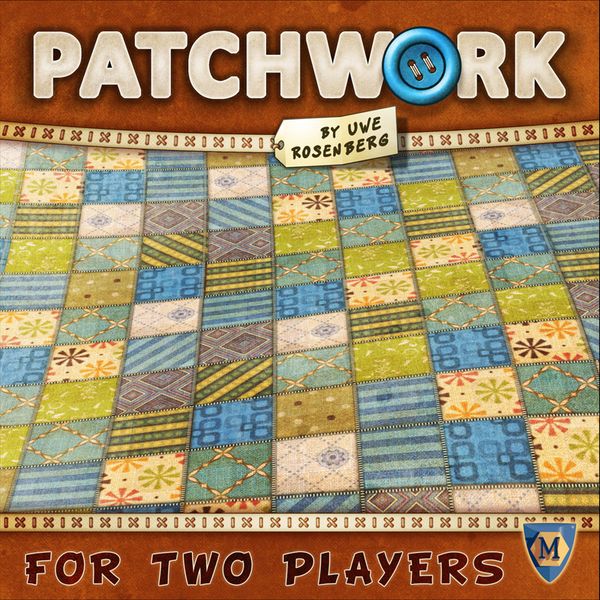 Patchwork: Probably our favorite two-player-only game we own at home. This game is adorable, and if you love Tetris, this game is for you. Take a look, please. It’s incredible 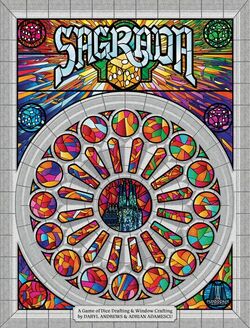 Sagrada: You’ll notice a theme here, despite the fact that these games don’t have theme…This game is GORGEOUS. The translucent dice are a bit small, but they look incredible when they’re placed in your stained-glass window. This is the most elegant dice-drafting game I’ve ever played, and the base game itself offers near infinite re-playability. 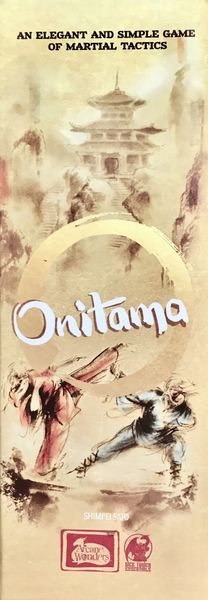 Onitama: Another two-player-only game for those who may have tried and struggled with Chess or Go (both fantastic games, but the meta-game makes those games decidedly unfriendly to new players). Alternately, if you enjoyed Chess or Go but aren’t necessarily willing to spend the hours on the meta-game, then this is for you. Amazing production. Ergonomic packaging that doesn't take up much space. This game will blow your mind as you try and decide which card to pass to your opponent to execute moves while executing your own. It's great. 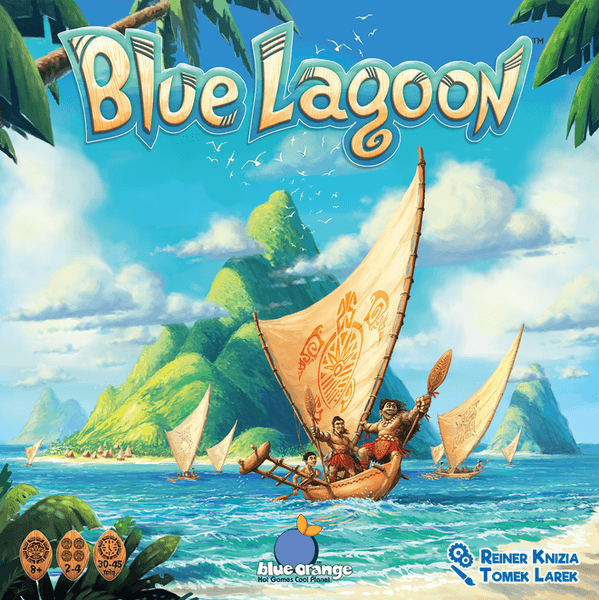 Blue Lagoon: Easily the most complex game on this list, but it’s definitely worth a shot, as it's from a legendary designer. The theme is sort of there in that you are technically exploring an archipelago with your tribe, but it’s really just about placing villages and settlers onto the board. This game is great to introduce the ideas of area control, set collection, and route-building. At any rate, I hope yall leave some comments or interact with me on Twitter to continue the conversation. Next time, we’ll be talking about Family Games!
Credit: All images come from Boardgamegeek |
Or, the writing gamer...An infrequent review of my collection of hobby board games, coverage of the board game hobby at-large, lists, purchasing advice, and maybe some writing updates here and there. Archives
September 2022
|
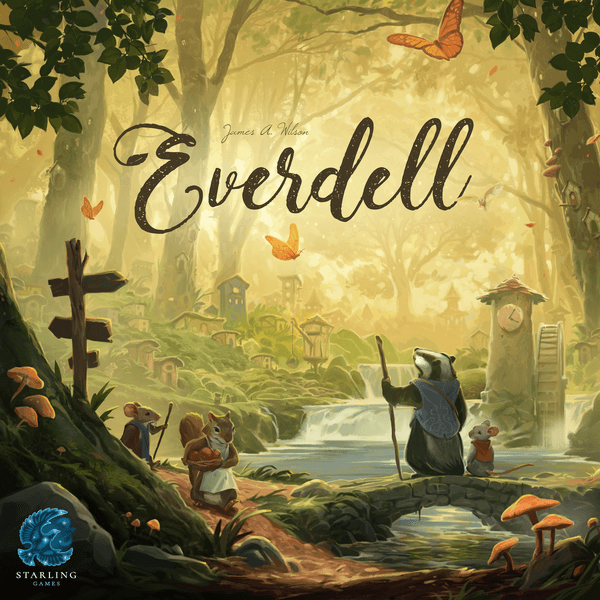
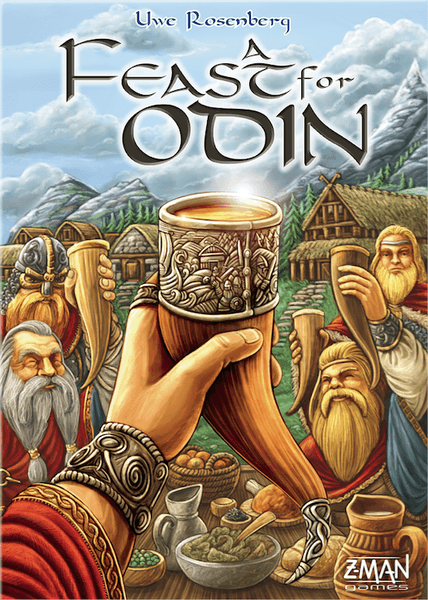
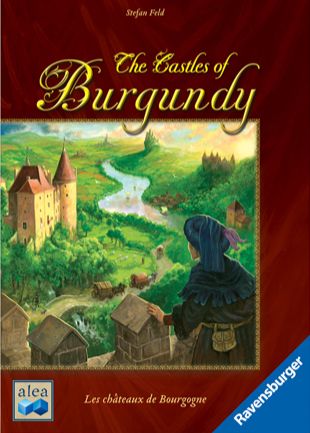

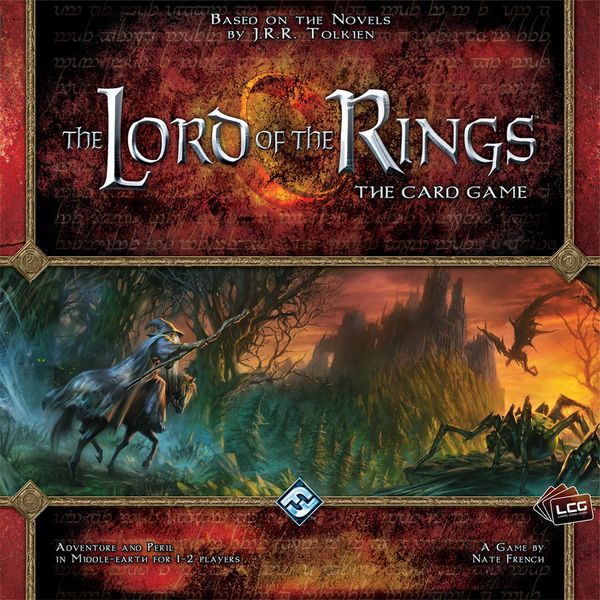
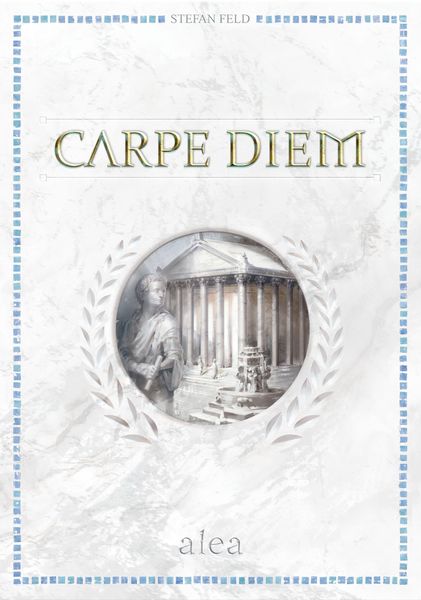
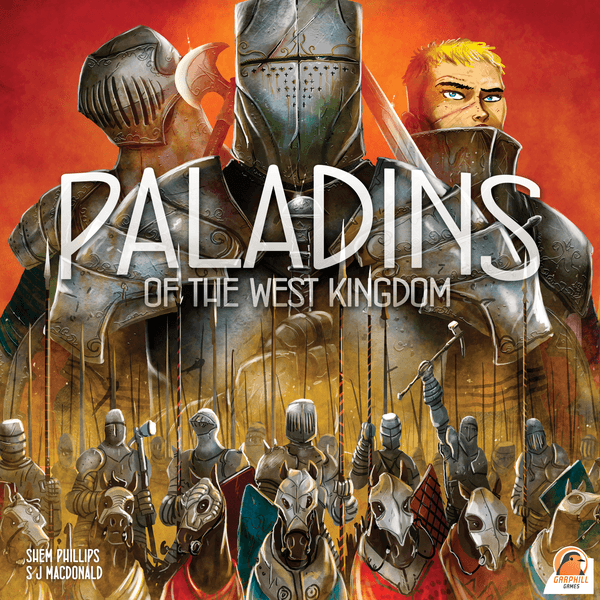

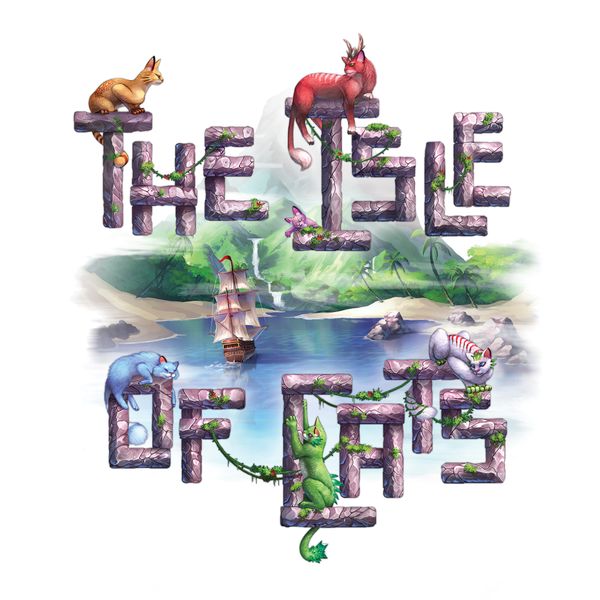
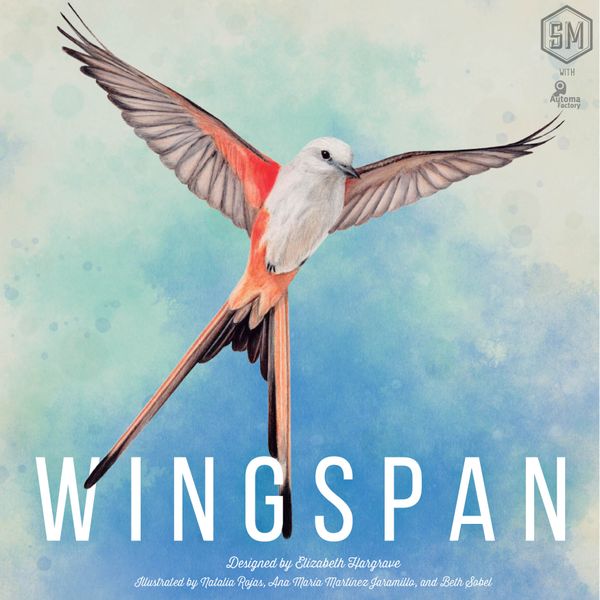
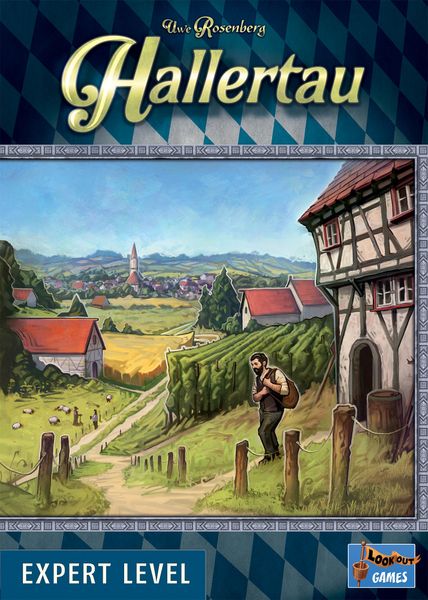
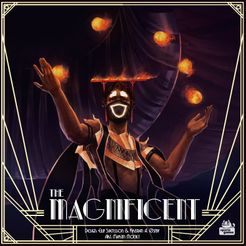
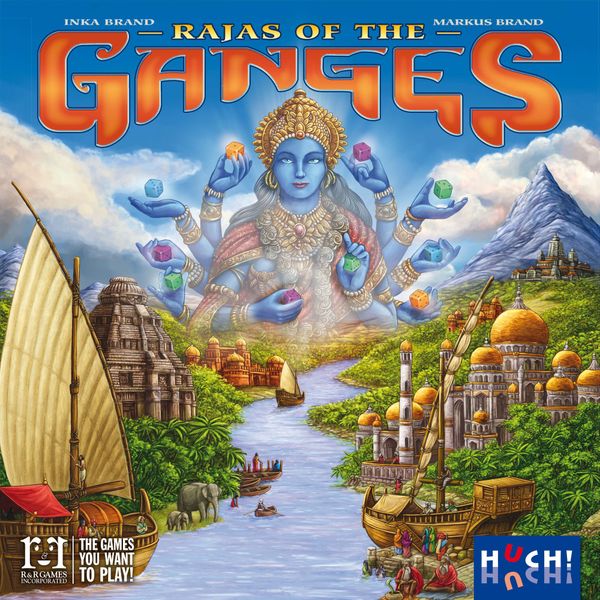
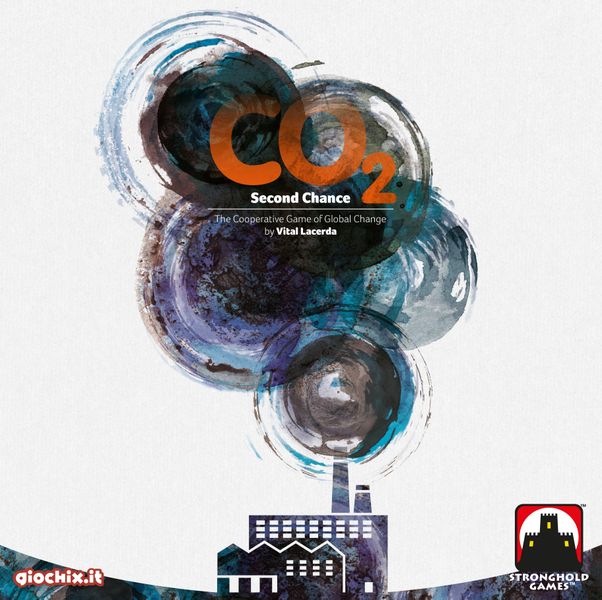
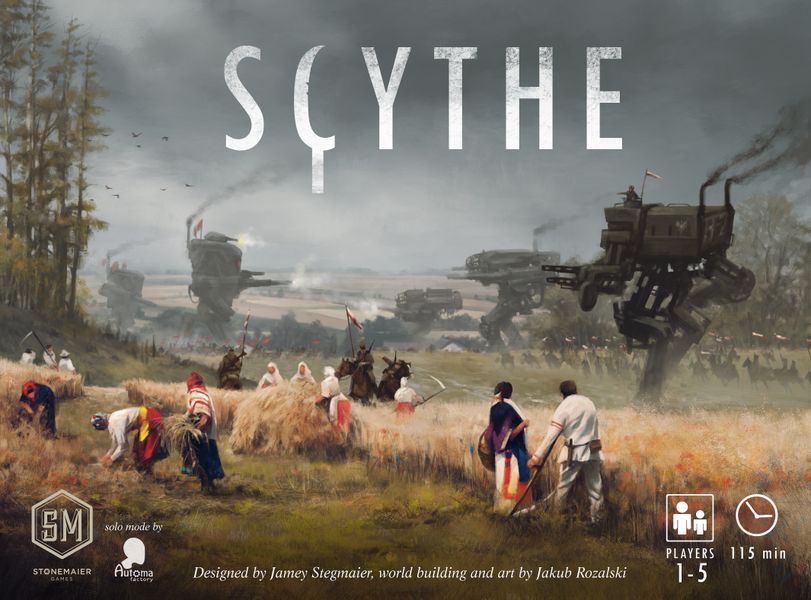
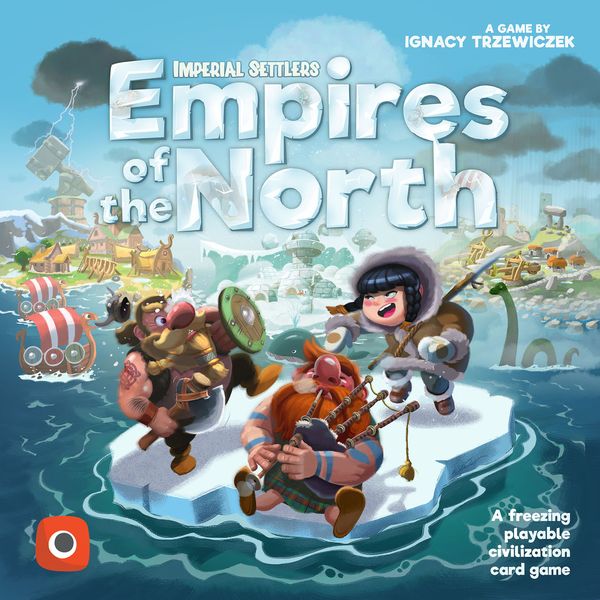
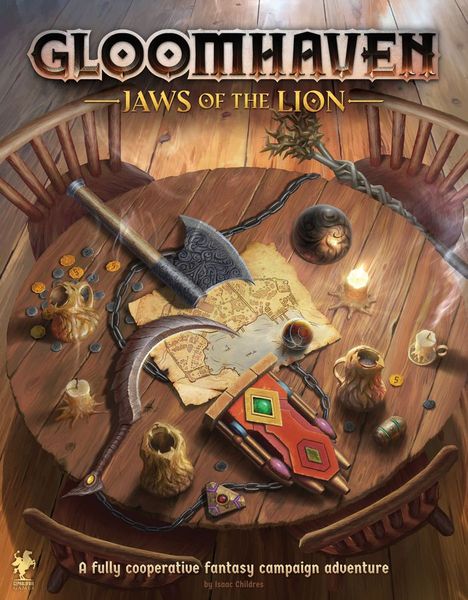

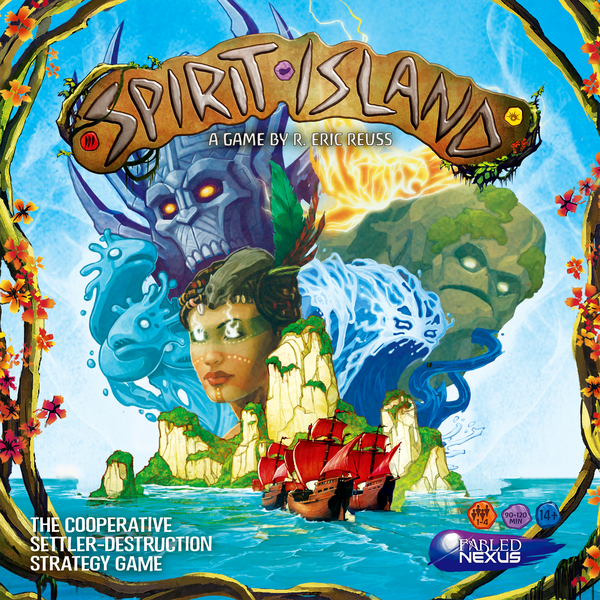
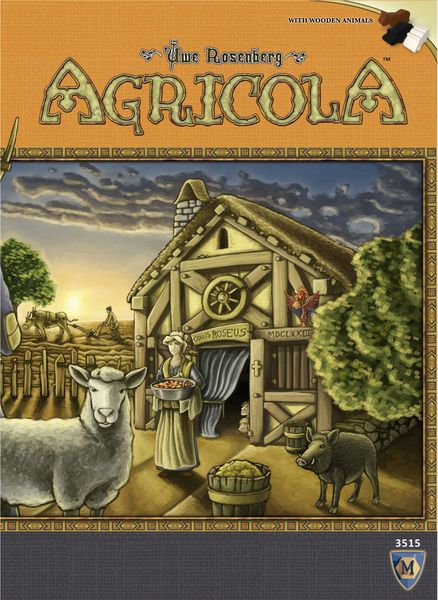
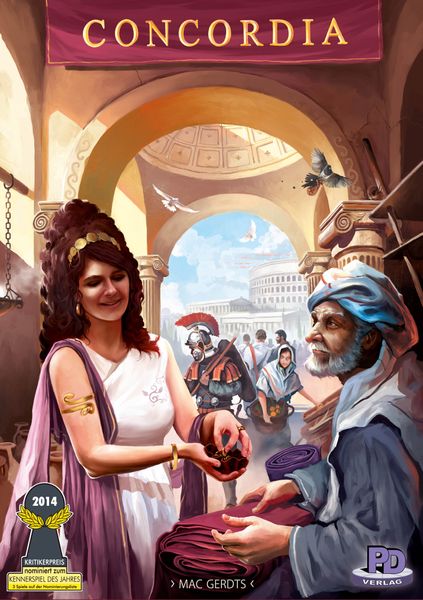
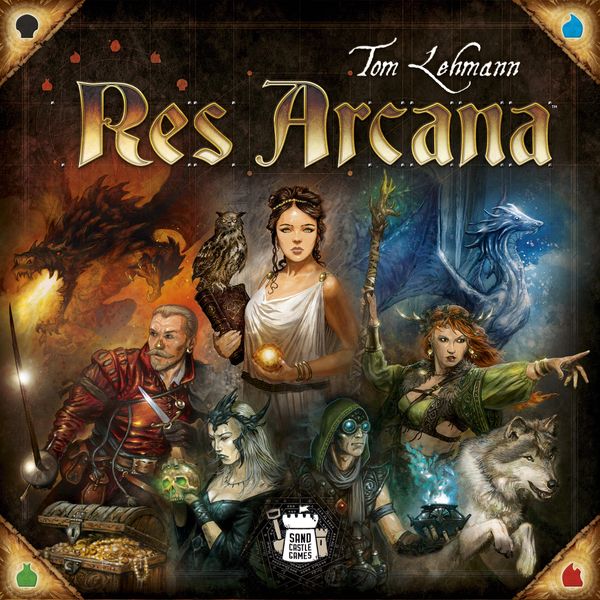
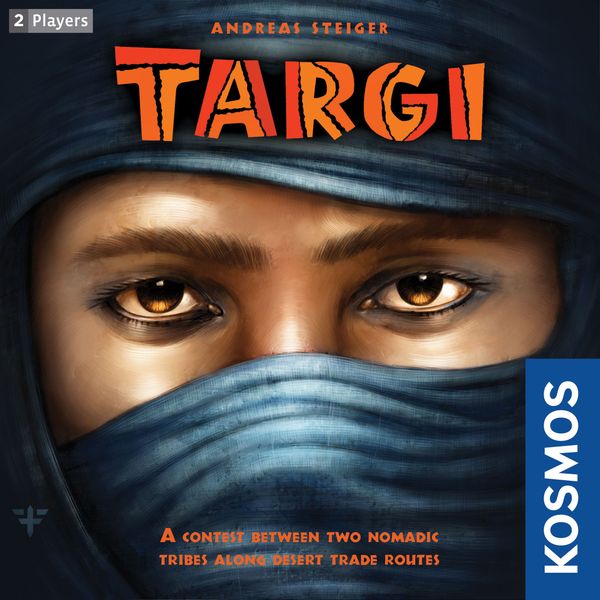
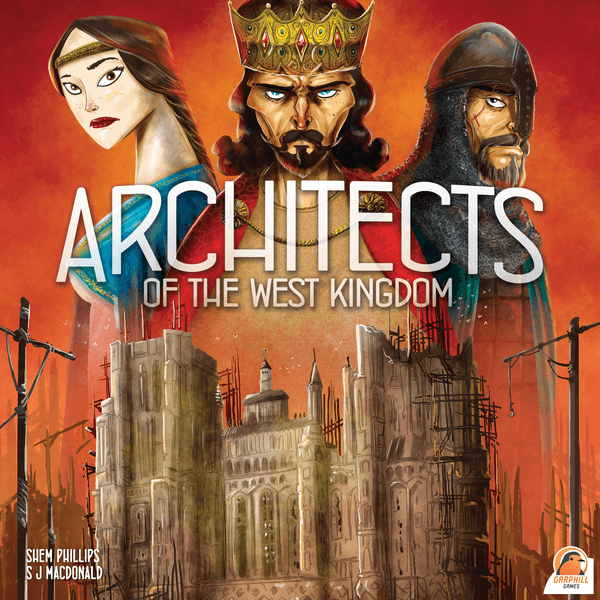
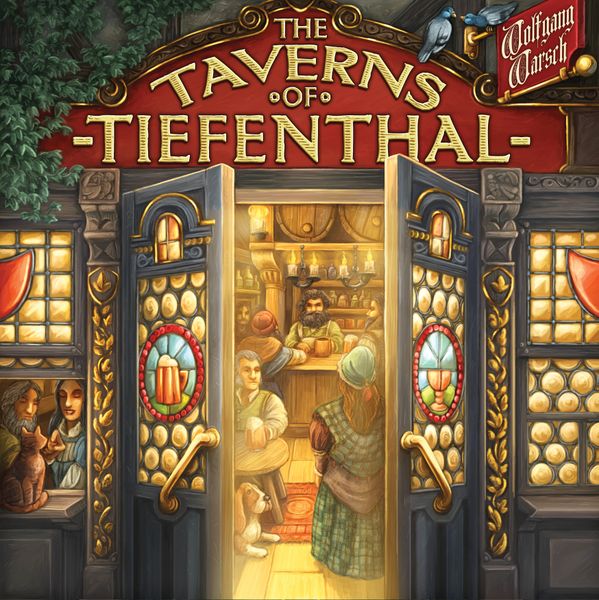
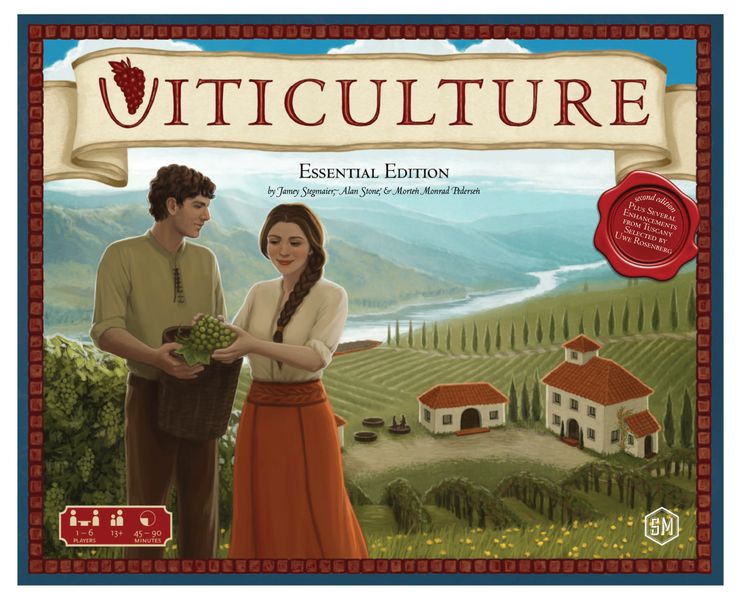
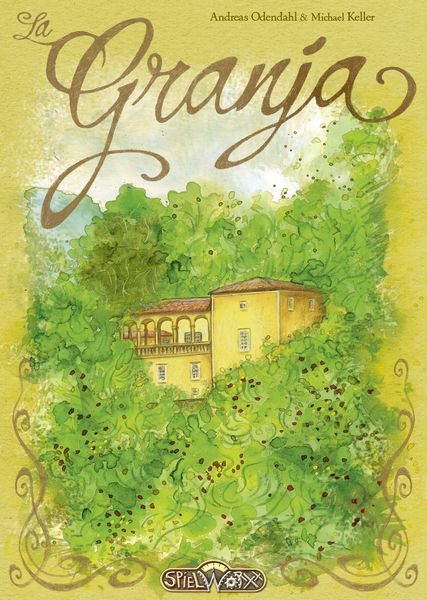
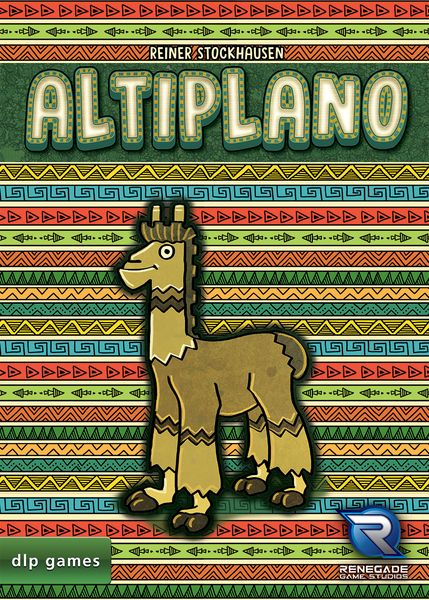
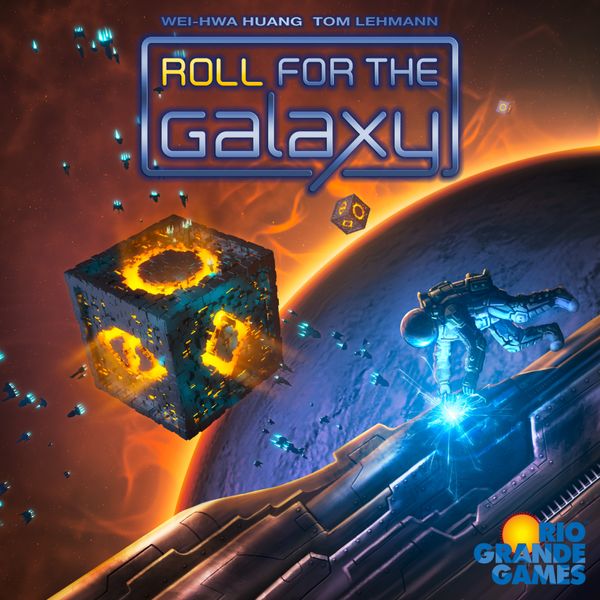
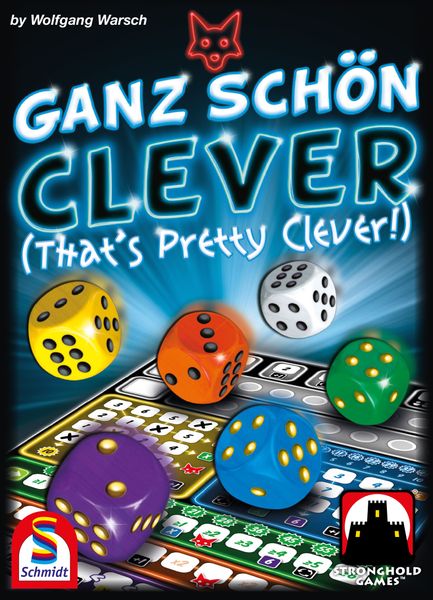
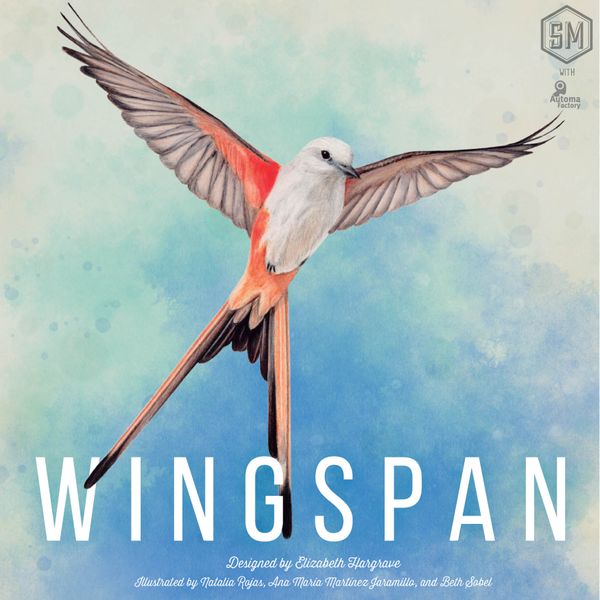
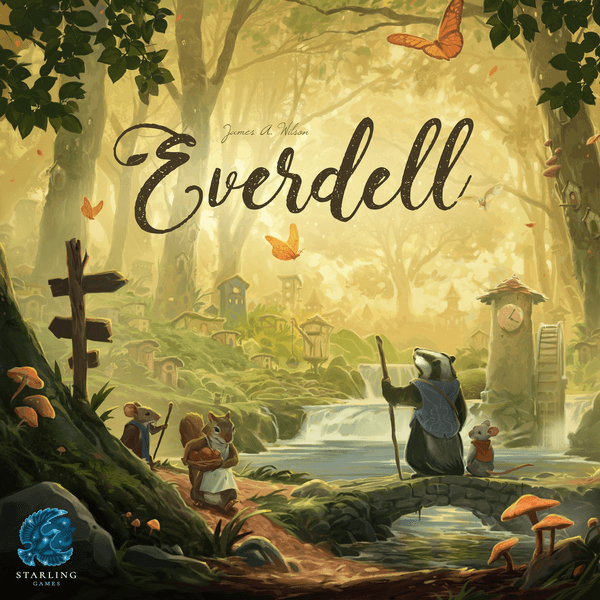
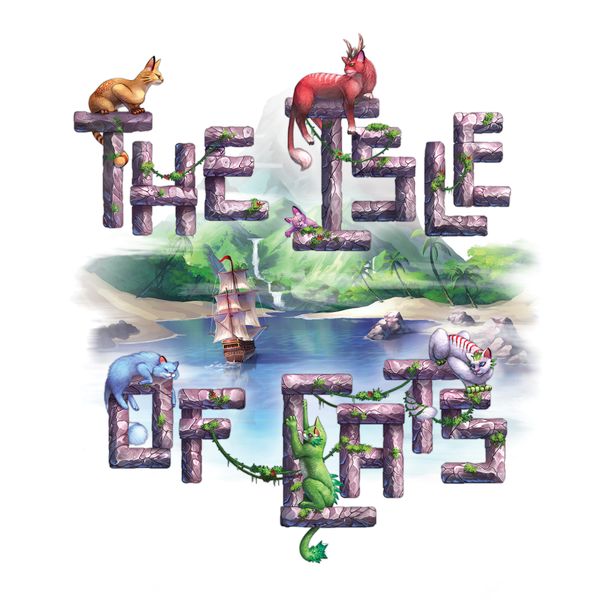
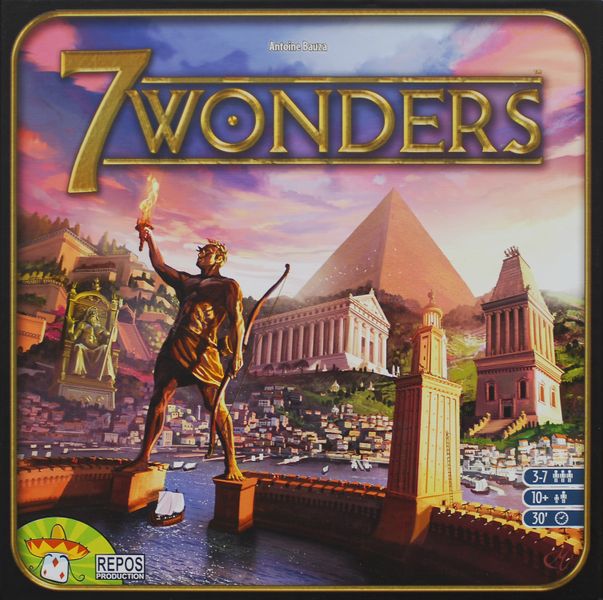
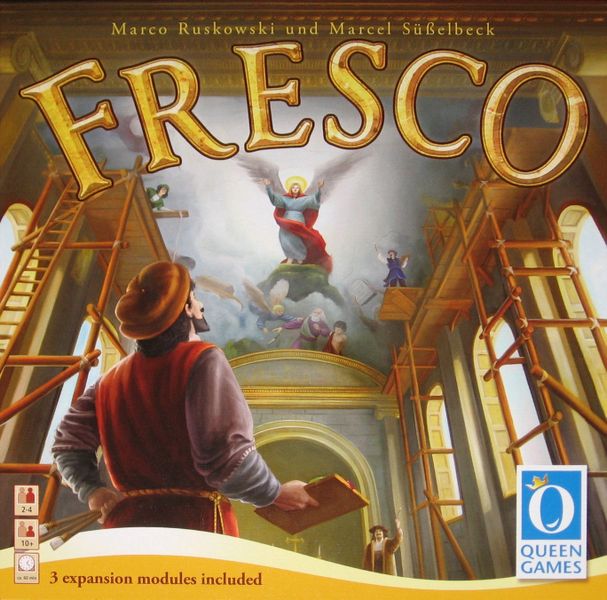
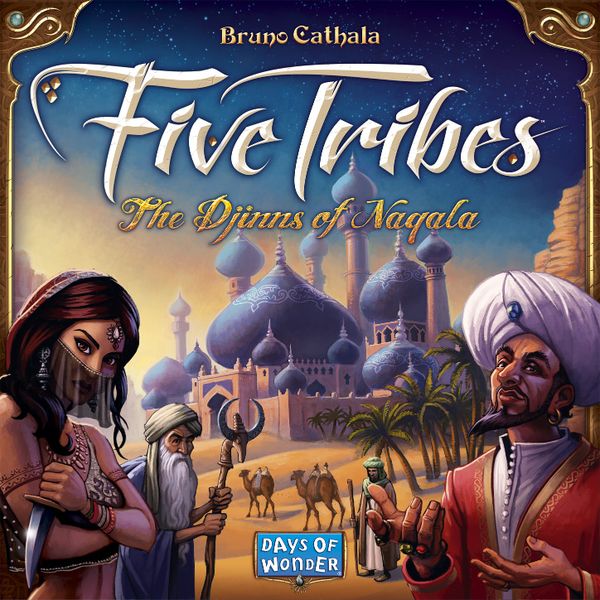
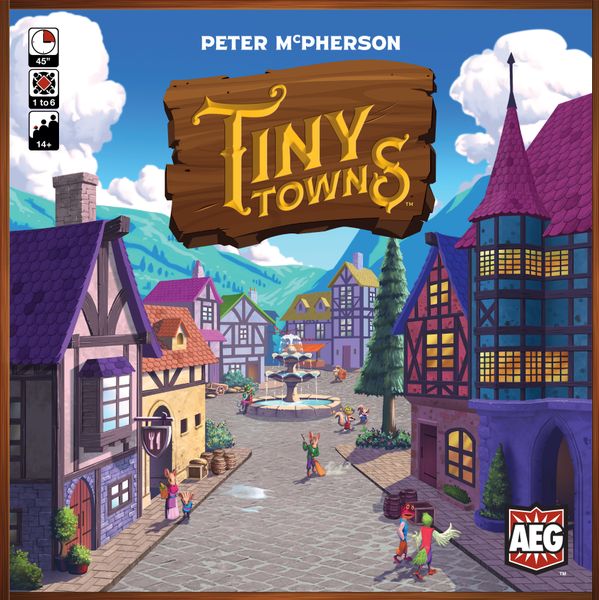

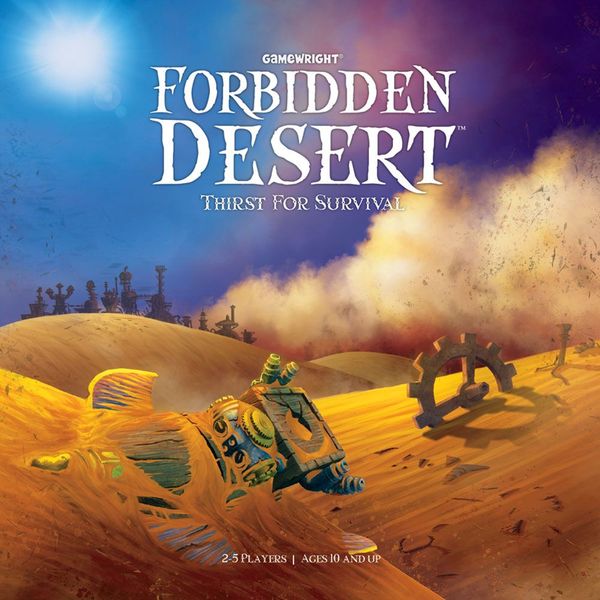
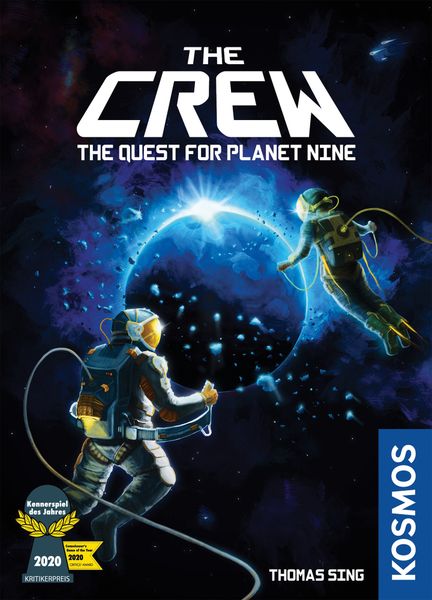
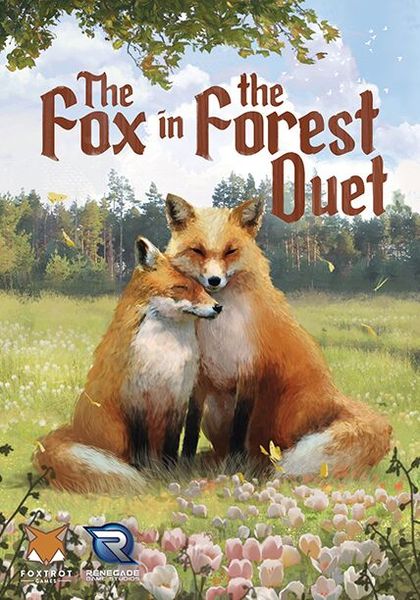
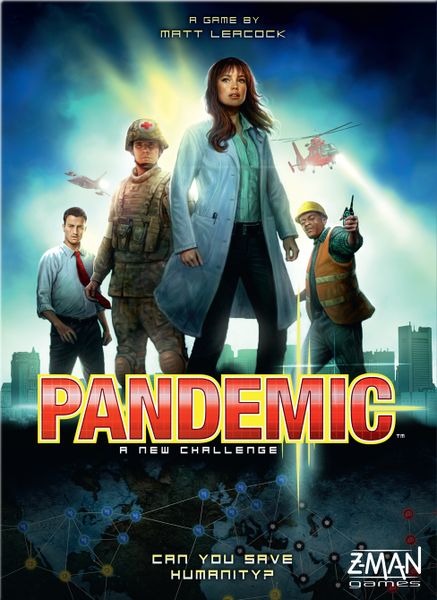
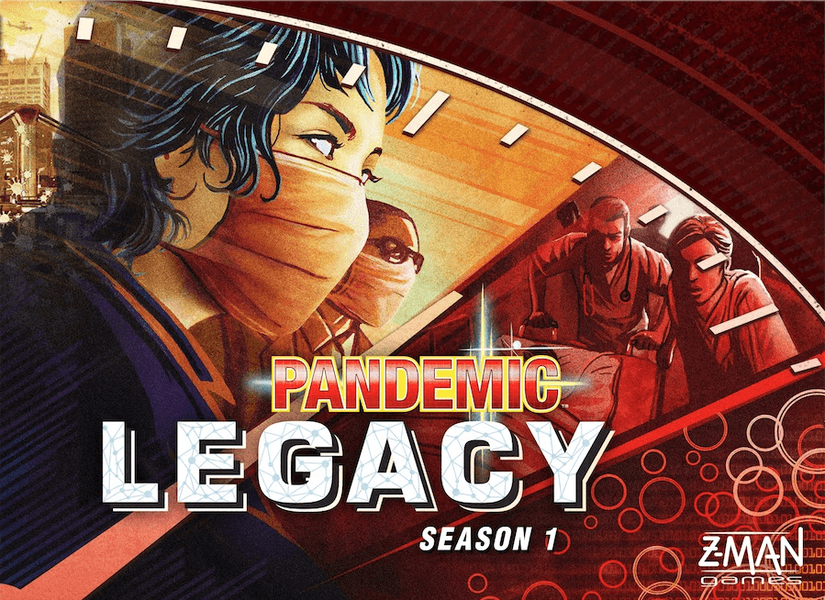
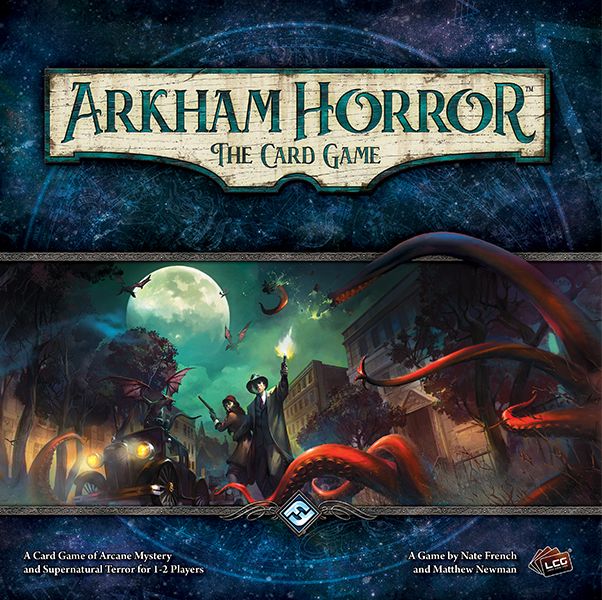
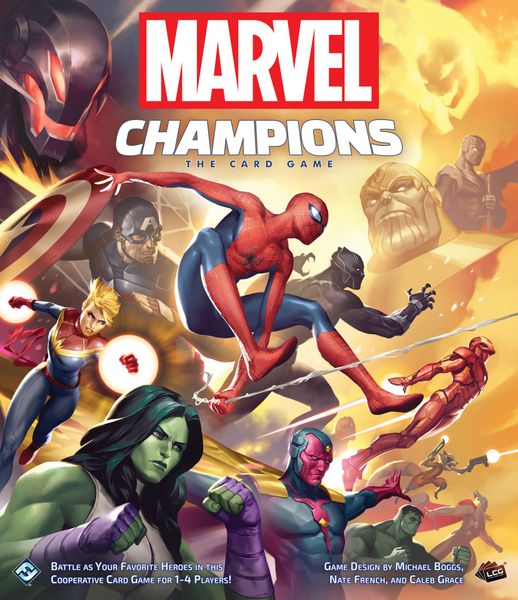
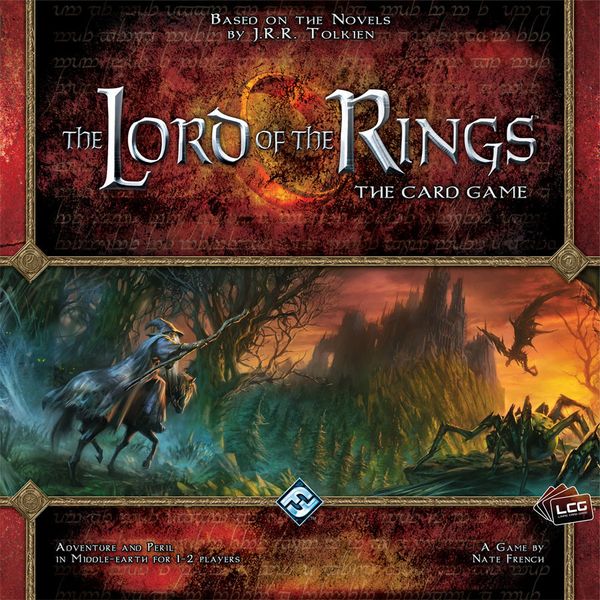
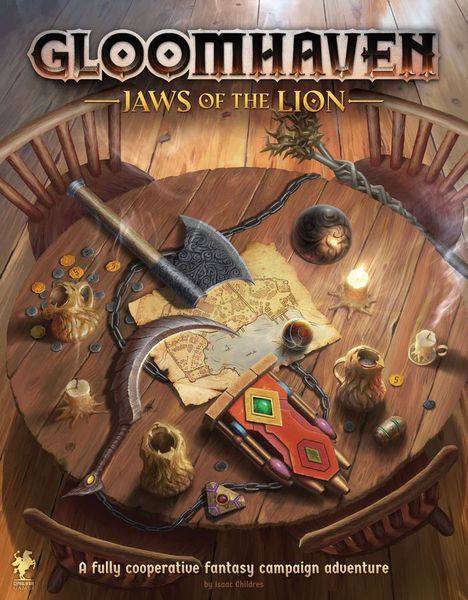
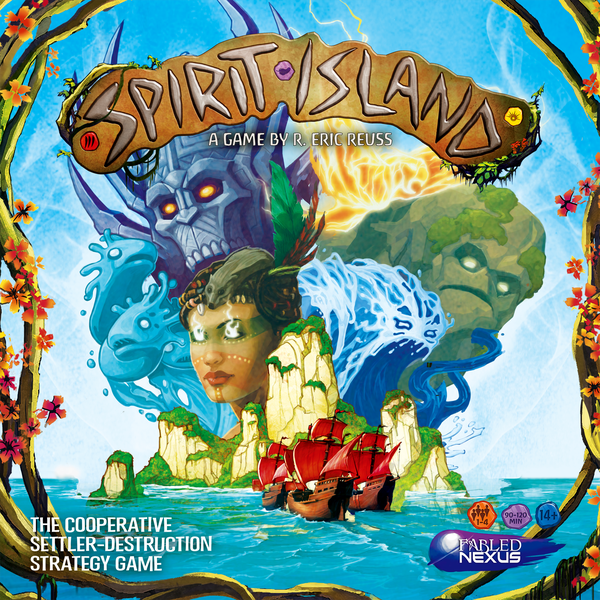
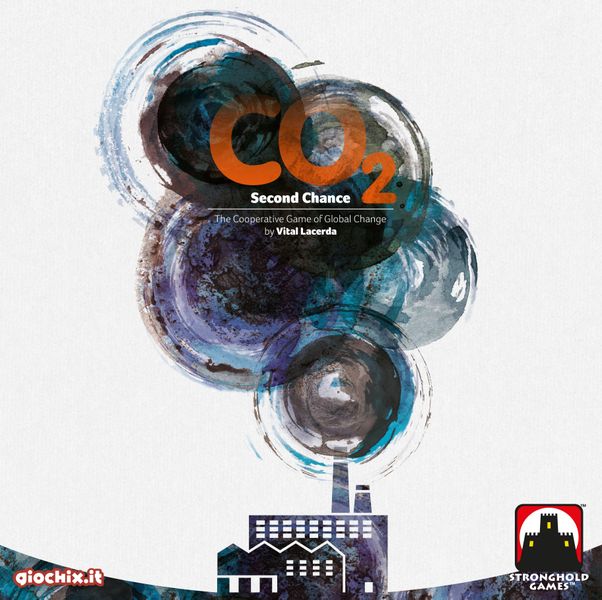
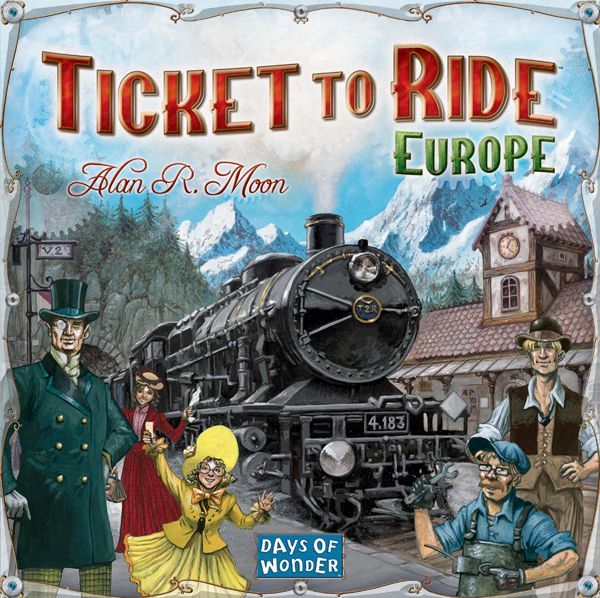
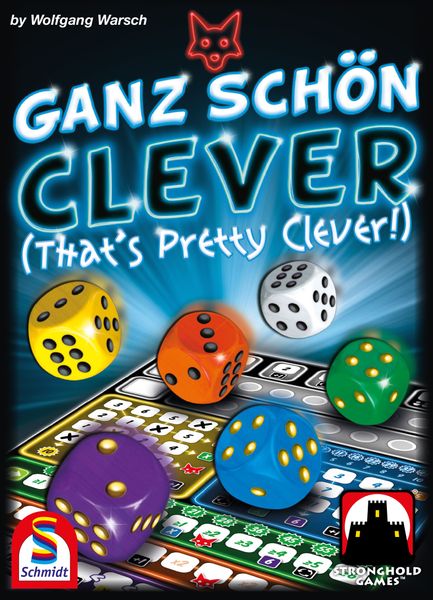
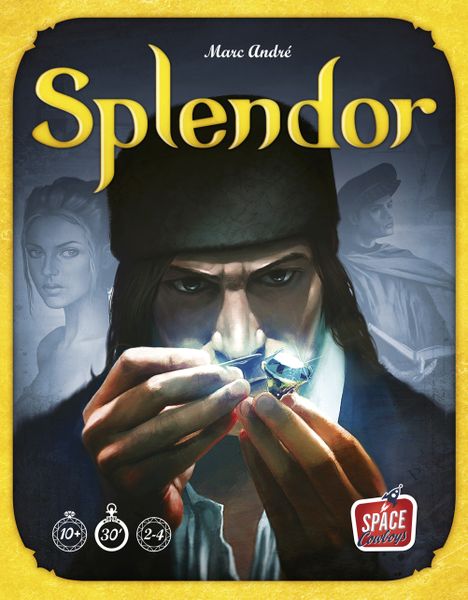
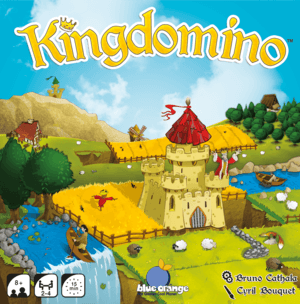
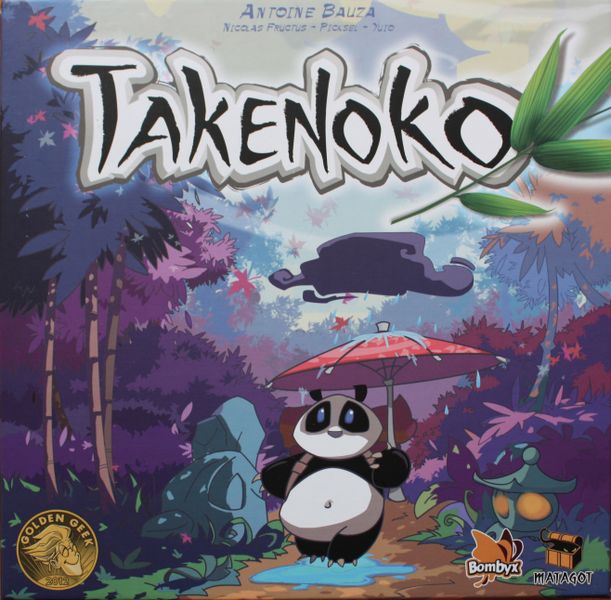
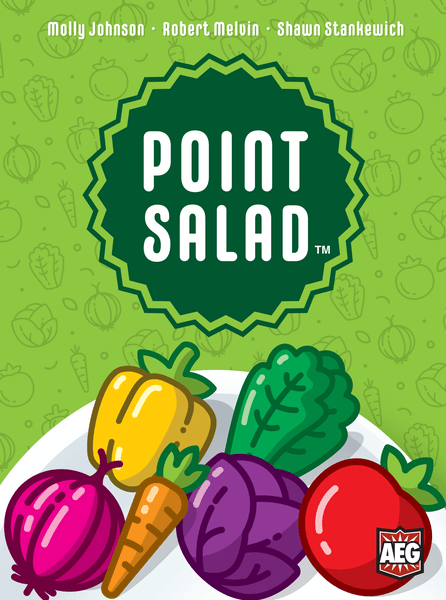
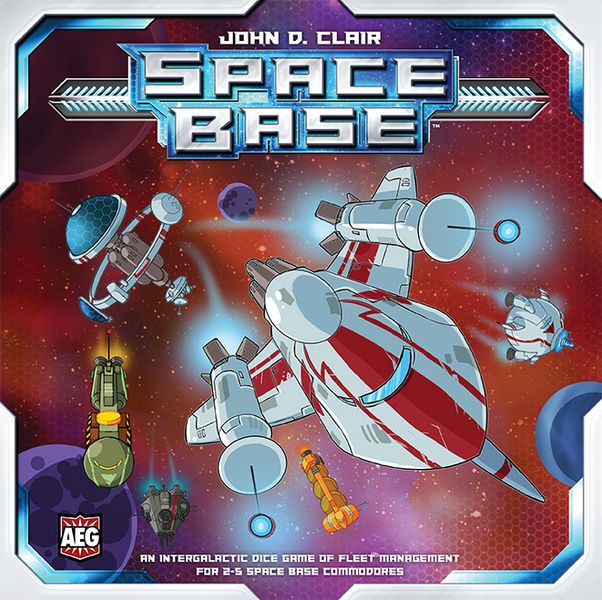
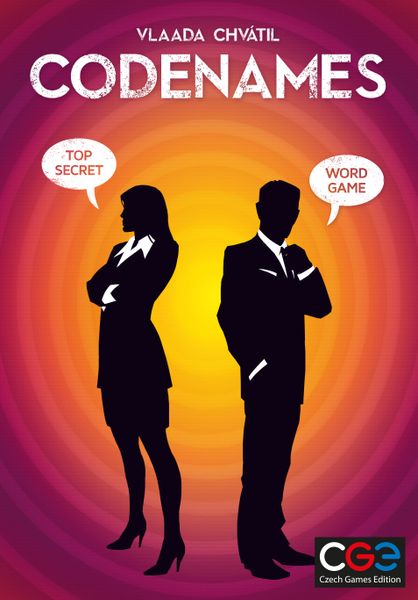
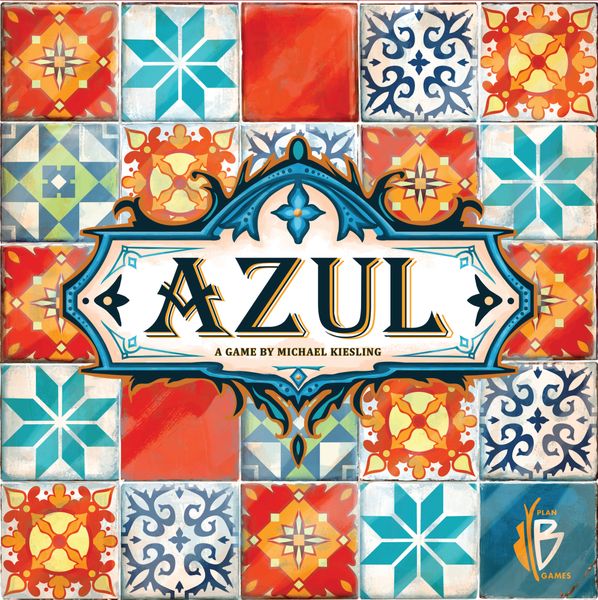
 RSS Feed
RSS Feed